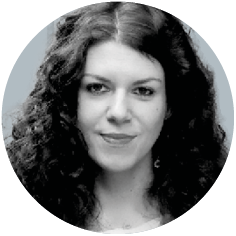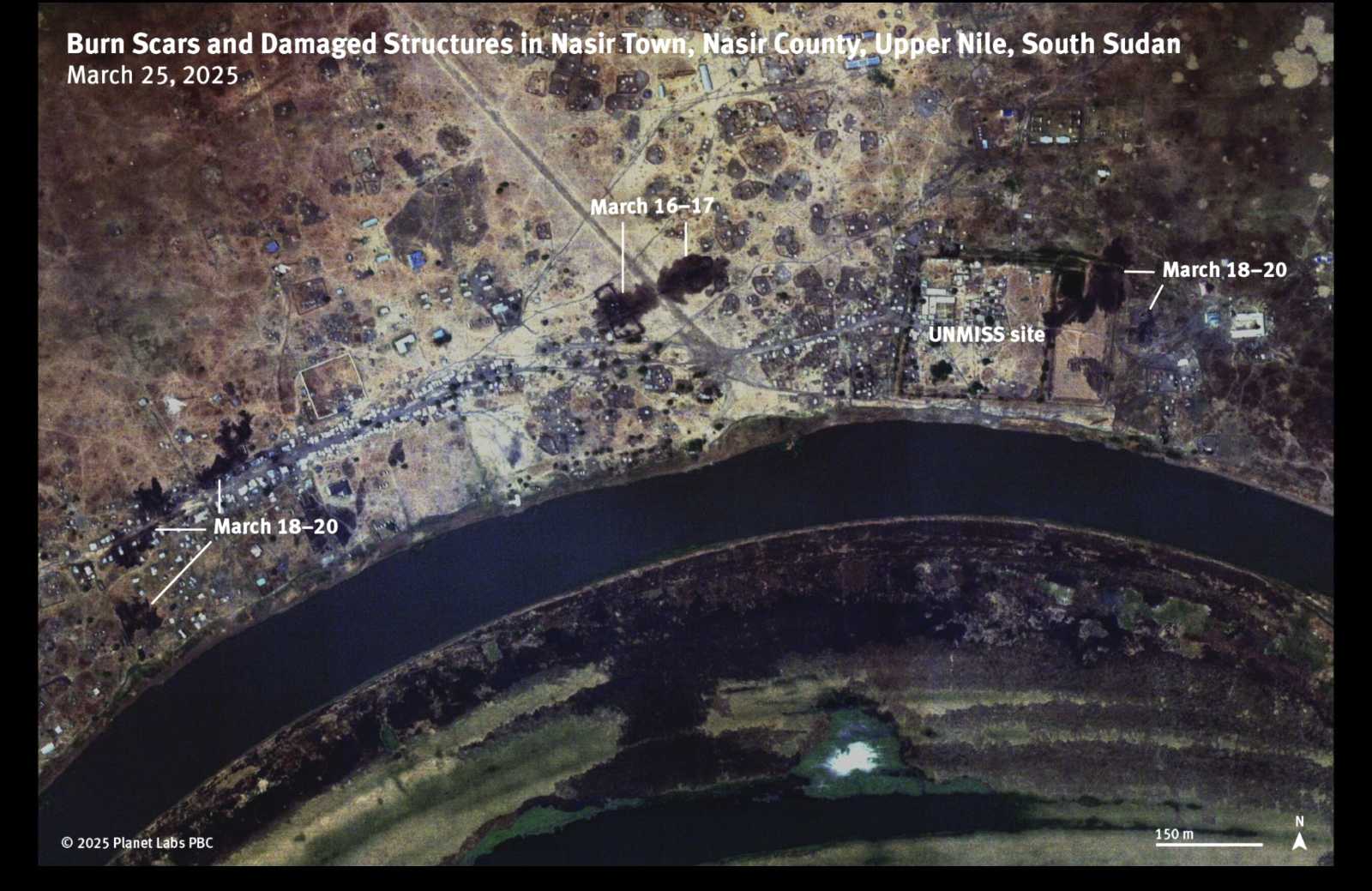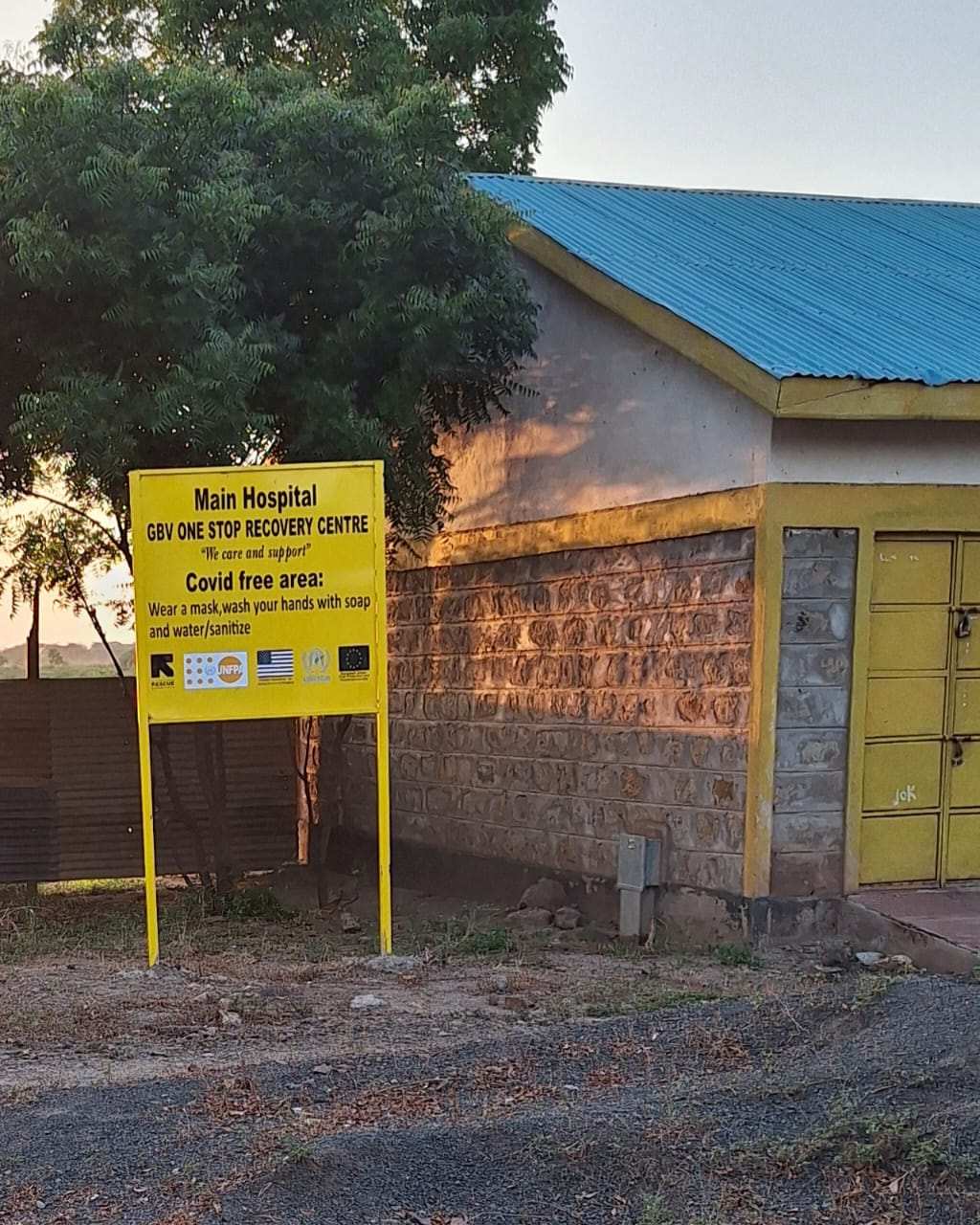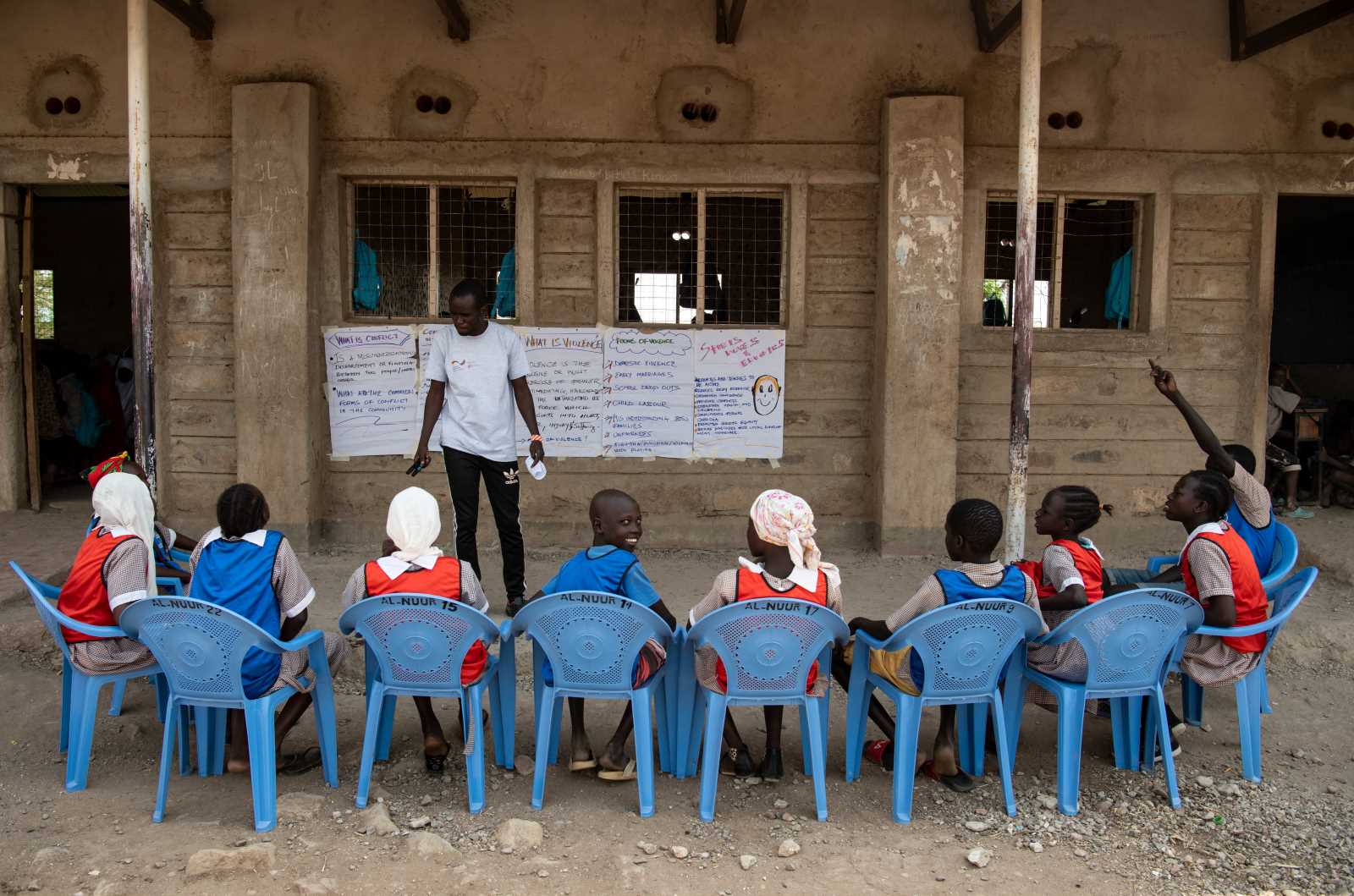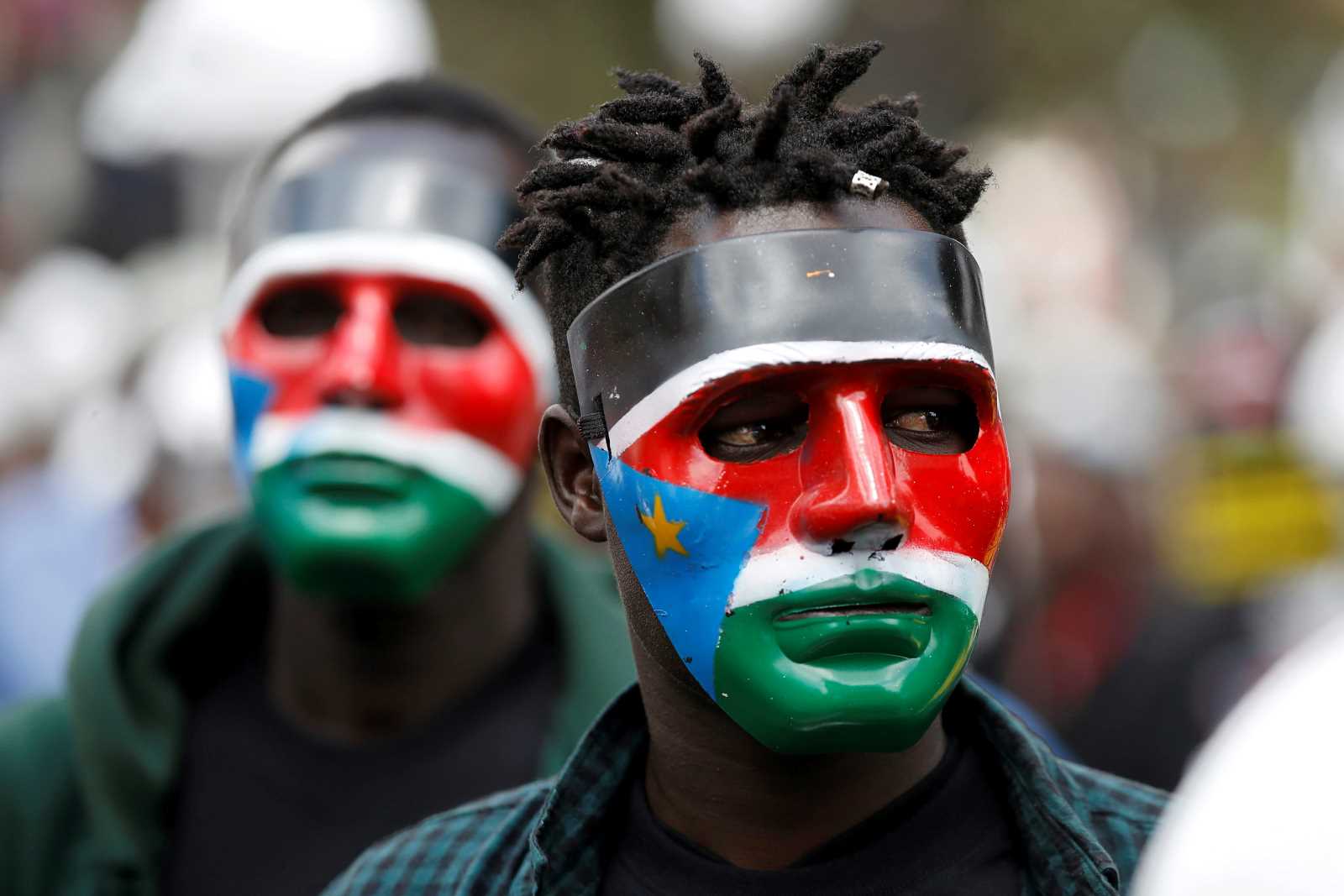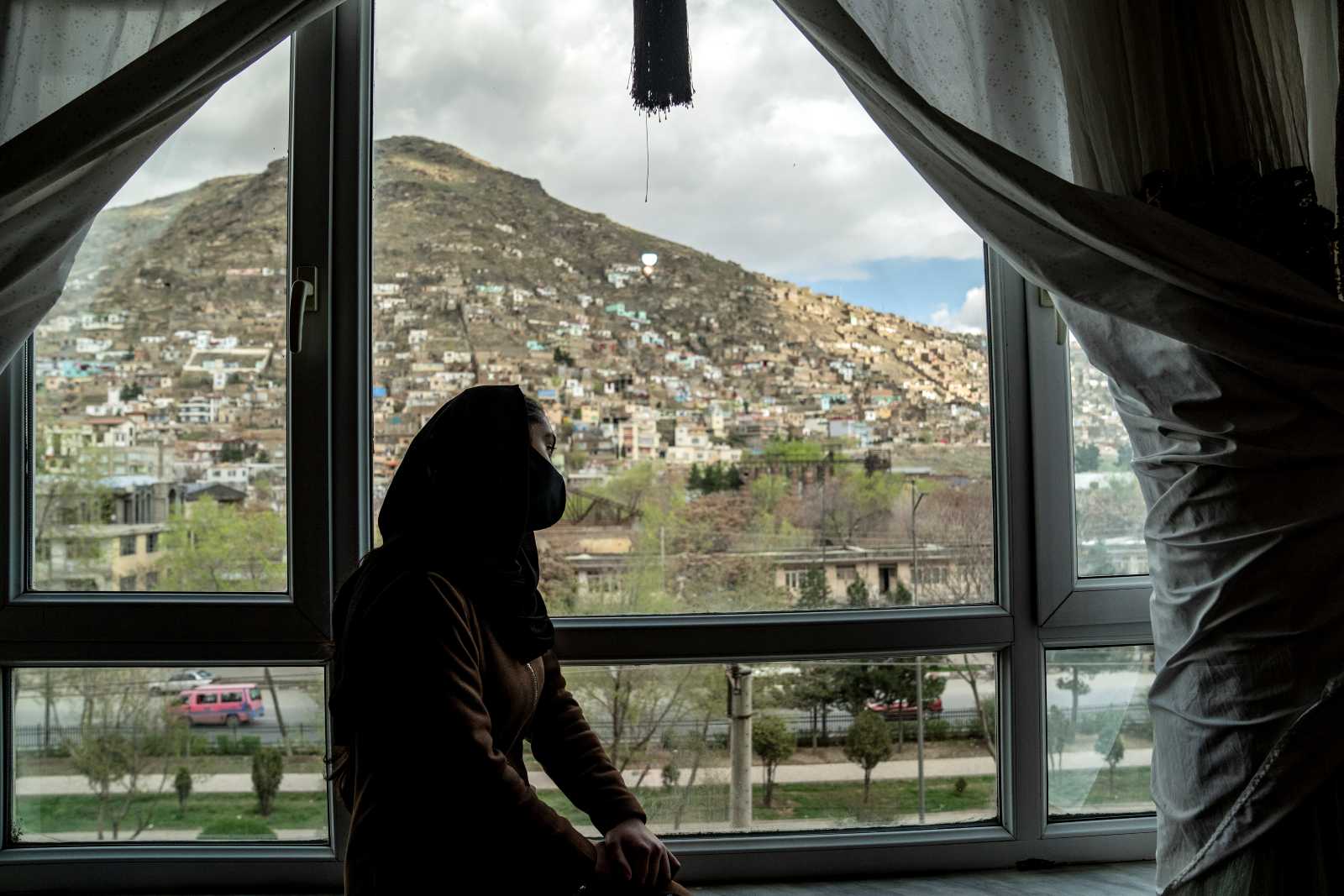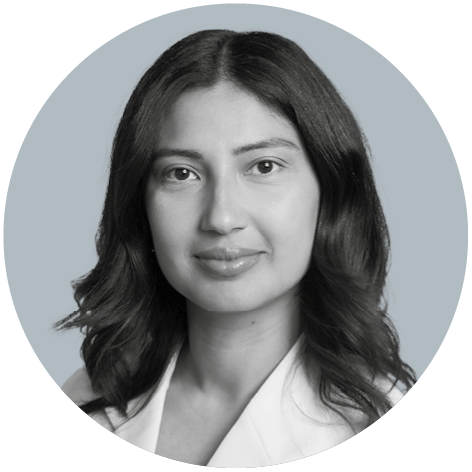New beginnings
Two sisters, two paths
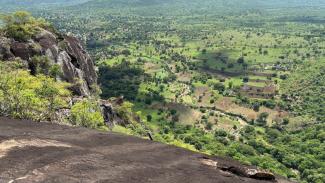
Anna and Lily Nadai have not seen each other for four years. Anna brought her sister to the airport in Nairobi, and then Lily’s plane took off for New York. “I had very mixed feelings,” Anna recalls. “I was sad, because we had never really been apart, but also happy for her and the opportunities she was going to have now.”
Nowadays the sisters call each other daily to ease the pain of separation, but seeing each other again under the current American administration is almost unimaginable. Even before Donald Trump took office, all of Lily’s attempts to bring Anna to the USA failed. And neither wants Lily to risk losing her visa by travelling abroad. So, she stays away from all the family celebrations that would make a reunion possible.
They likely saw each other for the first time shortly after birth: The fraternal twins were born in 1997 in the small town of Chukudum, in what is now South Sudan. Anna is two hours older than Lily. Their mother was the fourth wife of a chief of the Didinga ethnic group and a well-known independence fighter. The twins have a brother and around 30 half-siblings.
The so-called Second Sudanese Civil War had been raging since 1983 in the region that at the time still belonged politically to Sudan. The Sudanese People’s Liberation Army (SPLA) was fighting against the troops of Sudan’s central government. There were historical reasons for the conflict: In 1947, northern Sudan and colonial power Great Britain agreed that the former would also control the provinces of southern Sudan after independence. The southern part of the country had no part in the decision, which sparked decades of fighting for more political representation, resources and ultimately independence for the south.
A 2005 peace agreement made South Sudan an autonomous region. The independence that followed has so far failed to bring the new country true peace, however: Violent clashes between ethnic groupings or state security forces and rebel militias are still occurring.
Sudan’s civil wars killed an estimated 2.5 million people and displaced about 4 million. The twins’ parents did not survive the period, either. Their father became the victim of a political assassination in 1999. That same year, their mother was killed by a land mine.
Flight by night
A fight broke out over Lily and Anna between their mother and father’s families. Their father had not yet fully paid off the bride price for his fourth wife, and part of their mother’s family hoped to later marry the twins off to obtain compensation. Then everything changed.
Many of Anna and Lily’s half-brothers had already fled on foot to Kenya. They pressed for the sisters to join them. At night, in secret, the twins were smuggled over the border to Kenya – with the help of the German nun and missionary Luise Radlmeier, who was active in the region during the war.
Anna and Lily landed in Kenya’s notorious Kakuma refugee camp, located near the border. It is one of the largest in the world. Around 300,000 refugees are currently living there. Many have been there for 20 years, including some of the twins’ friends and relatives.
Under the protection of Dominican nuns
Kakuma could have been the last stop for Anna and Lily, too, but after only a month, Luise Radlmeier brought the now eight-year-olds to Juja, a city in the Nairobi metropolitan region. At the time, she was running the order’s house there and continuing to advocate for war refugees from South Sudan and elsewhere. She placed the twins in an orphanage run by Dominican nuns and ensured that they could go to school.
In the beginning, it was difficult for both children to get used to living in a foreign country. They only spoke Didinga, the language of their ethnic group. In time, they learned Kiswahili and English, Kenya’s official languages. The fact that more or less all the children in the orphanage had been uprooted went a long way towards promoting integration and cohesion across ethnic borders, the twins recall. Even now, the “orphanage siblings” are important people in each other’s lives.
The twins report that they sometimes encountered racism or discrimination at school because of their background and very dark skin colour. But these experiences were limited. In Kenya’s multiethnic society, which includes refugees or migrants from Burundi, Somalia, Eritrea, Nigeria and elsewhere, everyone feels foreign from time to time, Anna says.
Standing on their own two feet
When they were 20, the sisters moved out of the orphanage and into a small apartment. With support from the Dominicans, who kept finding new Western sponsors for the children under their care, and their large family, Anna and Lily were able to attend university. Anna earned a diploma in communications, Lily in public relations. In Kenya, a diploma is a (more affordable) precursor to a bachelor’s degree.
Like many graduates, they could not find work in their fields at first. Even though Kenya’s social structure generally makes it easier for people from a variety of backgrounds to integrate, Kenyan nationals are usually given preference in the country’s highly competitive labour market.
Anna and Lily kept their heads above water with a variety of jobs. They helped friends with a clothing store, sold second-hand clothing online themselves and worked as coaches for a youth project. Anna ran a bar for her brother in Juja for a while; Lily sometimes worked asa model.
When the Covid-19 pandemic hit Kenya’s economy, the twins’ odd jobs came to an end. The two moved often – always together – from one small one-bedroom apartment to another, depending on the rental market. Both wanted to earn their bachelor’s degrees, but they lacked the financial resources. In moments of despair, they toyed with the idea of returning to South Sudan in the hopes that as citizens, they might find it easier to find permanent work there.
Separate paths
Then life took a sudden turn for one of them. Lily found a partner, also from South Sudan, who lived in the USA. In 2021, she managed to get a visa, and the sisters had to separate for an extended period for the first time in their lives.
Lily is now training to become a nurse in a medium-sized city in the state of New York. She has a green card. She has not yet experienced open racism in the USA, she says. It helps that she has a cousin living in the same city, as well as a friend she met in the Kakuma refugee camp. Other members of the large Nadai family live in other US states. Getting together with them is difficult, Lily says, but she takes comfort in the fact that she could stay with them if she had to. A sponsoring family that supported Anna and Lily in the orphanage also stays in touch.
Anna still lives in Juja, but she has made progress, too. Her brothers helped her finance a bachelor’s degree in communications, and she has gained more of a foothold in the media landscape – for instance as a freelance journalist and with a few of her own videos on YouTube. She has a permanent part-time position in a community-based organisation in which she coaches disadvantaged girls. Lily also supports her financially.
Anna is well integrated into the city’s community, has a large circle of friends and often has her hands full with her various projects. “Juja has become my home,” she says.
What unites both siblings, is the pain of separation. “The fact that we can talk every day makes it easier,” Lily says. “And I also take comfort in the fact that I can help Anna by being here.” She is determined to keep supporting her relatives and for that reason also make something of herself. She thinks that doing so will be easier in the USA than in Kenya. At the same time, the East African country is still more familiar to her; she says that life there is “more pleasant”.
Plans for the future
Above all, Anna would like Lily to come to her graduation ceremony next year in Kenya. What she would like most is to move to the USA to be with her and their other relatives, but she could imagine going to Europe, too. “The main thing is that I have the opportunity to work and earn money,” she says.
That’s also important to her because of something the sisters call the “black tax”: “My brothers and Lily have always supported me,” Anna says. “I also need to be able to help other members of my huge family soon. It’s a kind of family tax.”
Anna and Lily only returned to South Sudan once, when their father’s remains were reburied in a ceremony. That was in 2011. “If the country was peaceful and stable,” Anna says, “I could imagine making a new beginning there.”
Lily, however, says that she no longer feels a deep connection to the region where it all began. “Right now, I can only imagine visiting,” she says. “Nothing more.”
Katharina Wilhelm Otieno is an editor at D+C and works partly in Nairobi.
euz.editor@dandc.eu
